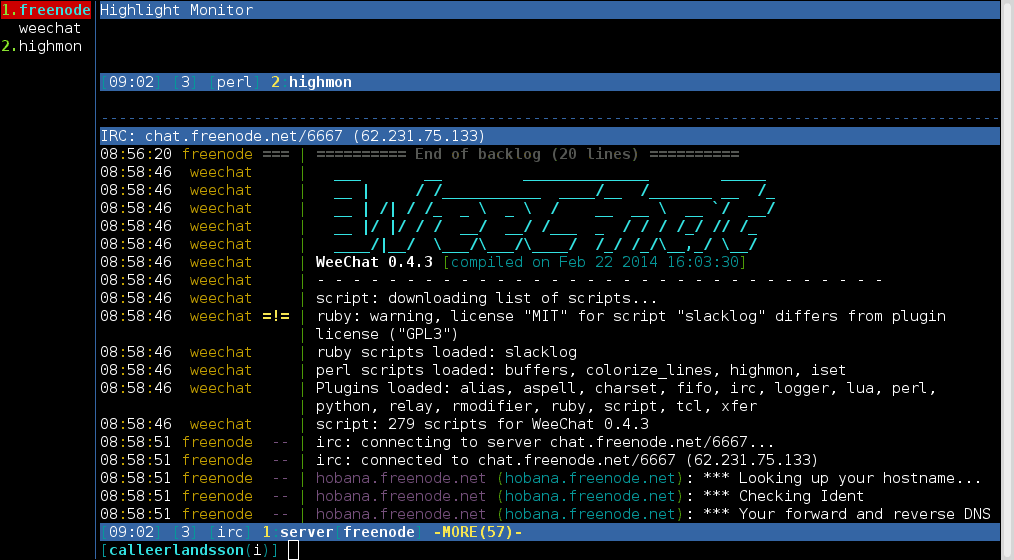The Evolution of Internet Relay Chat (IRC)
Origins of IRC
Internet Relay Chat (IRC) is one of the oldest forms of real-time communication on the internet. It was created in August 1988 by Jarkko Oikarinen, a Finnish programmer, as a replacement for a program called MUT (MultiUser Talk) on the University of Oulu's network. Initially, IRC was designed to work as a text-based communication protocol that allowed multiple users to engage in real-time conversations in public channels or private messages.
The simplicity of IRC's design made it highly adaptable and scalable. By the early 1990s, IRC networks began forming, connecting servers from various locations to allow global communication. Among the first major networks were EFnet (Eris-Free Network), Undernet, and DALnet.
Technical Aspects
IRC operates using a client-server model. Users connect to servers using an IRC client, such as mIRC, HexChat, or irssi. The protocol is relatively lightweight, which contributed to its popularity in the early days of the internet. The communication is conducted over channels, identified by a “#” prefix (e.g., #technology or #linux). Private messages between users are also a core feature.
The IRC protocol was standardized in RFC 1459 in 1993, and extensions have been made over the years to include features like secure connections (SSL/TLS) and extended capabilities for modern clients.
IRC in Popular Culture and Technology
During the 1990s and early 2000s, IRC was a cornerstone of internet culture. It was used by developers, gamers, activists, and everyday users to discuss topics ranging from open-source software to political activism. Notably, IRC was a critical tool during global movements, such as the Arab Spring and the Occupy Wall Street protests.
Despite the rise of modern messaging apps and platforms like Discord and Slack, IRC remains relevant in niche communities, particularly in the open-source and tech spheres.
History of Libera.Chat
Origins and Background
Libera.Chat is a modern IRC network that emerged as a successor to freenode, once the largest IRC network in the world. Freenode was originally founded in 1994 as a small network called “Open Projects Network” (OPN) by Rob Levin. It grew to become a hub for free and open-source software communities, providing a place for collaboration and support.
The Freenode Controversy
In early 2021, freenode was thrust into controversy due to disputes between the volunteer staff and the network’s ownership. Freenode had been acquired by Andrew Lee, a businessman with a background in cryptocurrency. The volunteer staff claimed that Lee’s leadership style and decisions diverged from freenode's founding principles of independence and community control. This led to a mass resignation of freenode staff members, who accused Lee of attempting to centralize control over the network.
The disputes culminated in several high-profile open-source projects and communities leaving freenode, as they perceived the environment as no longer aligned with their values of openness and decentralization.
The Birth of Libera.Chat
In May 2021, the majority of the former freenode staff announced the creation of Libera.Chat as a new IRC network focused on free and open-source software communities. The name “Libera” was chosen to reflect the network’s commitment to freedom and open collaboration. Libera.Chat quickly gained momentum as large projects like Ubuntu, Fedora, Arch Linux, and others migrated to the new network.
Key Features and Philosophy
Libera.Chat is built on the principles of transparency, user-centric policies, and community governance. The network prioritizes:
Decentralization: Operating as a nonprofit entity to ensure no single individual or organization can exert undue influence over the network.
Modern Features: Supporting IRCv3 extensions for a more modern user experience, including better authentication, message formatting, and history playback.
Community Focus: Actively supporting free and open-source projects, as well as other nonprofit and academic organizations.
Infrastructure and Support
Libera.Chat operates a distributed server network to ensure stability and reliability. It also incorporates advanced spam mitigation techniques to combat abuse while keeping the network accessible to genuine users. The network is supported by donations and volunteers, reflecting its grassroots ethos.
The Role of IRC and Libera.Chat Today
IRC, while not as ubiquitous as it once was, remains an important tool for technical communities, and Libera.Chat has cemented itself as a leading platform for these users. As the tech industry continues to embrace open-source software, platforms like Libera.Chat provide an essential space for collaboration and discussion. The network’s commitment to transparency and community-driven values ensures it remains a beacon for users seeking an alternative to proprietary platforms.
Libera.Chat is not just a network but a symbol of resilience in the face of adversity, embodying the spirit of open collaboration that has been central to IRC's history for over three decades.


